- Families of political prisoners have no information on their whereabouts
- North Korean escapees arrested in China should not be repatriated
- Public executions are still witnessed
GENEVA/SEOUL (21 June 2019) – “North Korea is at a historical crossroads. If the right and just decisions are made, a peaceful and prosperous Korean Peninsula will appear on the horizon,” said UN human rights expert Tomas Ojea Quintana.
At the end of a five-day mission to Seoul, the Special Rapporteur on the situation of human rights in the Democratic People’s Republic of Korea, expressed regret that he did not see any sign of improvement in North Koreans’ human rights.
“I urge the Government of North Korea to fundamentally reform the human rights mechanisms in order to achieve peace and development,” he said in a statement.
“To start with, be open about kwanliso (political prison camps). Stop sending repatriated escapees to kwanliso. Inform the prisoners’ family members of where they are. The family members I met, as well as millions of other families, deserve knowing whether their beloved ones are alive and how they are doing.
“In this regard, I call upon the Government of China not to repatriate North Korean escapees. I am glad that China takes humanitarian principles into consideration in deciding on the fate of the escapees. I strongly hope that they give the primary consideration to what will happen to the escapees if repatriated to North Korea.
“I am concerned that public executions seem to be still happening. People continue to live in fear of such brutal acts and of being sent to kwanliso.
“One the other hand, North Koreans I met are thirsty for information and freedoms. I urge the Government of North Korea to develop the conditions where people can securely engage in commercial activities to make their own livings. It should also relax the control over access to information. Watching South Korean soap operas and listening to foreign music does not necessarily make them anti-State.
“I would like to stress once again that without basic human rights for the people, there will be no long-lasting peace in the Korean Peninsula.”
ENDS
Mr. Tomás OJEA QUINTANA (Argentina) was designated as the Special Rapporteur on the situation of human rights in the DPRK by the UN Human Rights Council in 2016. Mr. Ojea Quintana, a lawyer with more than 20 years of experience in human rights, worked for the Inter-American Commission of Human Rights, and represented the Argentinian NGO “Abuelas de Plaza de Mayo” in cases concerning child abduction during the military regime. He also led cases of criminal corporate responsibility. He is a former Head of OHCHR human rights programme in Bolivia, and served as the UN Special Rapporteur on the situation of human rights in Myanmar from 2008 to 2014.
The Special Rapporteurs are part of what is known as the Special Procedures of the Human Rights Council. Special Procedures, the largest body of independent experts in the UN Human Rights system, is the general name of the Council’s independent fact-finding and monitoring mechanisms that address either specific country situations or thematic issues in all parts of the world. Special Procedures’ experts work on a voluntary basis; they are not UN staff and do not receive a salary for their work. They are independent from any government or organisation and serve in their individual capacity.
UN Human Rights, country page: DPRK
OHCHR Seoul Office
For more information and media requests please contact:
Ms. Madoka Saji (+82 2 725 3525) or write to msaji@ohchr.org
For media inquiries related to other UN independent experts:
Mr Jeremy Laurence – Media Unit (+ 41 22 917 9383 / jlaurence@ohchr.org)
Tag and share - Twitter: @UNHumanRights and Facebook: unitednationshumanrights
